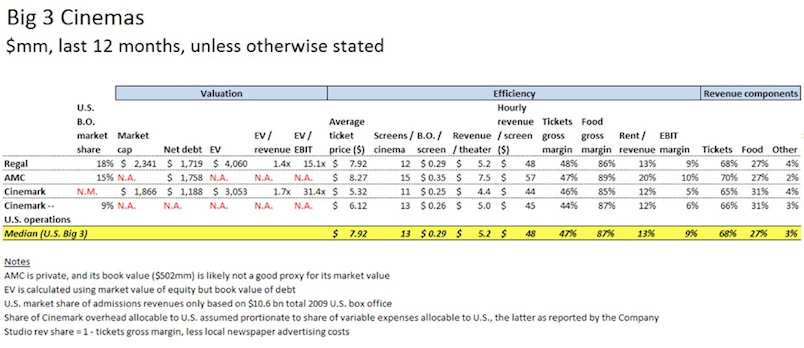Jon Reiss wrote to me and suggested this post (which he originally ran on his blog) on how move theaters could experiment more with online and social tools — and build audiences in the process. There’s too much here for anyone interested in the film biz to ever ignore.
We can do better. Let’s get started.
From Jon Reiss:
I had the fortune of meeting Jon Fougner, who is the Principal, Product Marketing Monetization at Facebook at Sundance this year (he was showing filmmakers how best to use Facebook to connect with audiences). He works with the ads engineers and Product Managers to define products that will be successful in the marketplace. I mentioned Think Outside the Box Office and he said «Hey, I wrote this white paper on how movie theaters could be more profitable if they would experiment more, especially with online and social tools. Would you like to take a look at it?» I immediately jumped at the chance to read it and publish it with my good friend Ted Hope. The original is 4000 words – so we have broken it into 5 sections which we will run consecutively through the beginning of next week. Jon will be appearing at the American Pavilion at Cannes on May 13th as well as the Produced By Conference in Los Angeles on June 4th. He’s at facebook.com/jfougner. Note that this draft was written last year; its qualitative and quantitative descriptions of the landscape are still fairly accurate, with at least one key exception: AMC has since revamped their loyalty program.”
Here is Jon’s Post:
Introduction/Abstrac
The role of film exhibition in our imagination dwarfs its role in our economy. Dolby surround sound, residual awe of movie-going as children, proclamations of Hollywood’s sway — all this industrial light and magic create the illusion that movie theaters are a big industry. In fact, cinemas represent only 0.1% of the $14 trillion U.S. GDP. State lotteries rake in 4 times as much. Ticket sales barely outpace inflation, and wispy margins bounce around the single digits. Whether family- or sponsor-owned, their mandate has been to spit off cash.
The result is a space that has attracted an anemic level of innovation, led by three scaled chains: Regal, AMC, and Cinemark. Together, the “Big 3” control 43% of the U.S. market. I say “together” because the three tend to act as consortia and exhibit (no pun intended) parallel behavior. Some adjacent innovation offers hope. For instance, as Avatar demonstrated, the studios’ development of 3D may prove one of several sorely needed silver bullets. But most adjacent innovation — in particular, high-resolution flat screens for home viewing, and Internet-based distribution vehicles to supply them with video — is an existential threat to the cinemas.
I believe that, without innovation, at least 1 of the Big 3 exhibitors risks losing its equity capital2 in the next five years. To be sure, their plight facing looming debt maturities is not as dire as Blockbuster’s. What’s more, there is a lot of low-hanging fruit. What I lay out below is an array of product, channel, marketing, and (in less detail) cost control tactics to get the ball rolling. More important than any one of these tactics, however, is the overall strategic mentality: to think more like a technology company. They need to embrace the scientific method to experiment, analyze, and iterate. They need to distribute to the edges of their employee base permission, responsibility, and incentive for delivering great products (think Starbucks or Nordstrom) and generating new ideas (think Best Buy or Google). And they need to move fast.3
Here’s a summary of where they stand:

Footnotes
1 My employer is Facebook. This article represents my thoughts, not its. Thanks to Zakia Rahman, Colin Darretta, Harry Chotiner, and Jared Gores for providing helpful comments on a draft. The usual disclaimer applies.
2 In the case of Apollo-owned AMC, it’s possible that, instead, value will be transferred from debt holders to equity holders, as was the case with Harrah’s, which Apollo and TPG own.
3 Some of these insights may be applicable to smaller cinema businesses, too.
4 Does not yet reflect 4Q 2009.
END OF PART ONE Tomorrow: Products
— Jon Fougner
Jon leads local product marketing and monetization at Facebook, working with the advertising engineers and product managers to build products for local businesses, ranging from restaurants to movie theaters.





